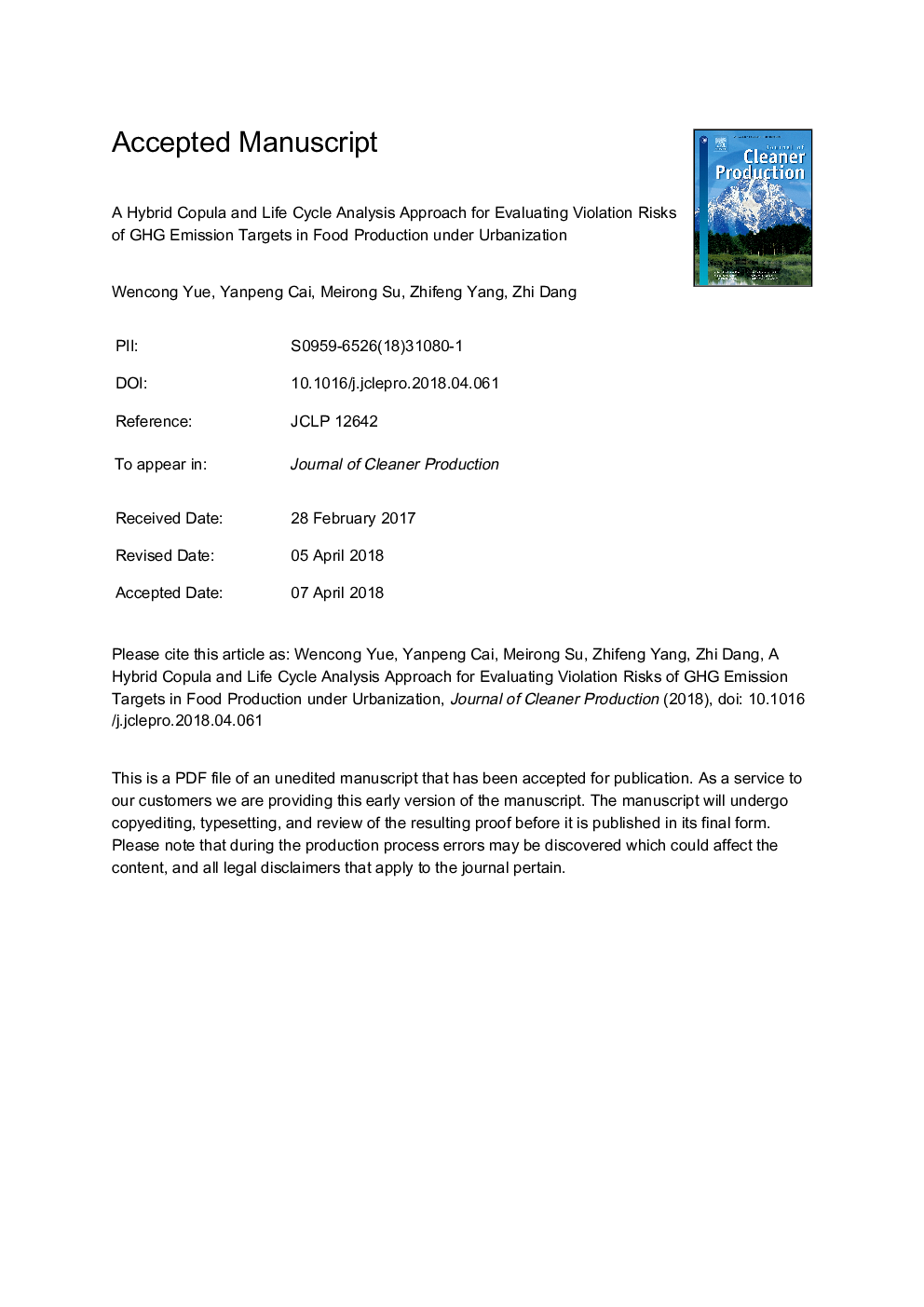| Article ID | Journal | Published Year | Pages | File Type |
|---|---|---|---|---|
| 8095014 | Journal of Cleaner Production | 2018 | 32 Pages |
Abstract
To improve the capabilities of conventional methodologies in supporting greenhouse gas (GHG) emission mitigation from food production under uncertain conditions, an integrated approach was developed through incorporating copula-based violation risk analysis into a general life cycle analysis (LCA) framework. This approach strengthened the applicability of LCA in terms of uncertainty and risk reflections for food systems in the background of urbanization under multiple GHG emission targets. In detail, such an approach can (a) reflect uncertainties of food production and consumption processes, (b) tackle joint probability of two correlated variables (i.e., GHG emissions and economic benefits) through the employment of Archimedean copula (i.e., Gumbel, Frank, and Clayton copula) and Gaussian copula, and (c) assess violation risk of GHG emissions in food production considering the trend of future urbanization. A case study was proposed to illustrate application of the approach in Dalian City, China. Considering uncertainties of dietary patterns in 2020, two scenarios (scenarios of baseline and increase) were proposed according to dietary structures of urban and rural residents. In detail, the scenario of baseline represented the recent dietary pattern of Dalian in 2015. Scenario of increase indicated 50% rise in beef, mutton, and milk compared with the dietary pattern under the scenario of baseline. The results showed that based on the current agenda upon GHG emission intensity in China, violation risks under the scenario of baseline would be more prominent than the violation risks under the scenario of increase.
Related Topics
Physical Sciences and Engineering
Energy
Renewable Energy, Sustainability and the Environment
Authors
Wencong Yue, Yanpeng Cai, Meirong Su, Zhifeng Yang, Zhi Dang,
